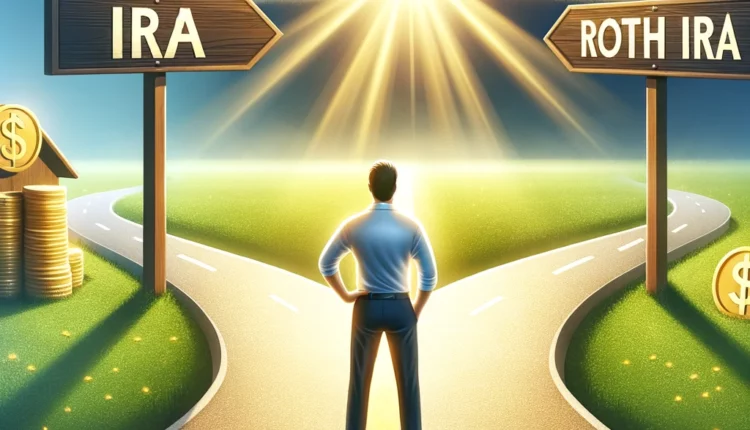Navigating the Shift: Converting an IRA to a Roth IRA for a Brighter Financial Future
Embarking on the journey of retirement planning can be akin to navigating a complex maze, with each turn presenting new decisions and opportunities. Among these, converting a Traditional Individual Retirement Account (IRA) to a Roth IRA stands out as a pivotal choice, offering a path to tax-free income in retirement. This transformation not only affects your future financial security but also demands a nuanced understanding of tax planning and retirement strategies. Let’s delve into the essentials of Converting an IRA to Roth IRA, providing you with the knowledge to make informed decisions that align with your financial aspirations.
Contents
Understanding Roth IRA Conversion
A Roth IRA conversion is the process of transferring assets from a Traditional IRA into a Roth IRA. This move is significant because it transitions your savings from a pre-tax to an after-tax status, meaning you pay taxes on the conversion upfront. However, this initial tax payment facilitates tax-free growth and, most importantly, tax-free withdrawals on both contributions and earnings after retirement, given that certain conditions are met.
The Appeal of Roth IRA Conversion
Why would one opt for a Roth IRA conversion? The advantages are manifold, particularly the lure of tax-free income during retirement, which can provide a stable and predictable financial environment. Furthermore, Roth IRAs are not subject to Required Minimum Distributions (RMDs), offering you greater control over your financial resources and the timing of withdrawals.
Evaluating Your Financial Landscape
The decision to convert should be preceded by a thorough evaluation of your current financial status, future income expectations, and tax considerations. If you project a higher tax rate in retirement compared to your current rate, a Roth IRA conversion could offer significant long-term savings. However, it’s crucial to have the financial means to cover the conversion taxes without compromising your retirement funds.
Strategic Timing for Conversion
Timing your conversion can profoundly influence its tax implications. A year with lower-than-usual income may present an opportune moment, potentially reducing the tax burden of the conversion. Conversely, it’s essential to be mindful that the added income from the conversion doesn’t push you into a higher tax bracket, thereby increasing your overall tax liability.
The Horizon Matters: Long-Term Benefits
The full value of a Roth IRA conversion tends to manifest over the long term. The longer your investment has to grow tax-free, the more likely it is that the benefits of the conversion will outweigh the upfront tax costs. This strategy is particularly advantageous for individuals with a long runway until retirement or those planning to leave a tax-free inheritance.
Conversion Tactics: Making it Work for You
- Partial Conversions: Consider converting portions of your IRA over several years to spread out the tax impact.
- Tax Planning: Be prepared for the tax implications of the conversion. Ideally, taxes should be paid from outside sources to preserve the integrity of your retirement savings.
- Professional Guidance: The intricacies of Roth IRA conversions suggest the value of consulting with a financial advisor or tax professional to tailor the strategy to your unique financial landscape.
FAQ About Converting an IRA to a Roth IRA
Can anyone convert their IRA to a Roth IRA?
Yes, anyone with a Traditional IRA can convert to a Roth IRA, regardless of income level. This change, enacted in 2010, opened Roth conversions to a broader audience, eliminating previous income restrictions.
- No income limits for converting
- Available to all Traditional IRA holders
- Changed in 2010 to expand access
How does a Roth IRA conversion affect my taxes?
Converting to a Roth IRA adds the converted amount to your taxable income for the year, potentially increasing your tax liability. However, this upfront cost paves the way for tax-free growth and withdrawals, which can be a beneficial trade-off for many investors.
- Increases taxable income in the year of conversion
- May raise your tax liability for that year
- Facilitates future tax-free growth and withdrawals
Conclusion
A Roth IRA conversion represents a strategic maneuver within the broader scope of retirement planning, promising tax-free growth and withdrawals. This pathway, however, requires careful consideration, strategic planning, and sometimes, a bit of courage to navigate the upfront tax payments. By weighing the immediate costs against the long-term benefits, and with the right guidance, you can secure a tax-efficient retirement, ensuring peace of mind and financial stability in your golden years.

